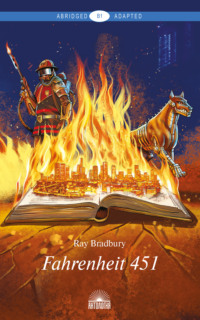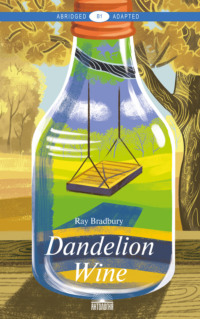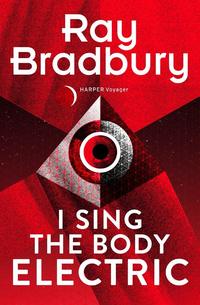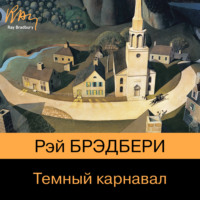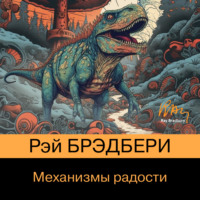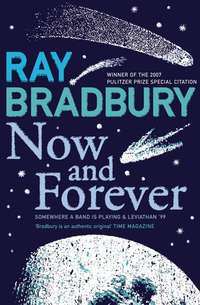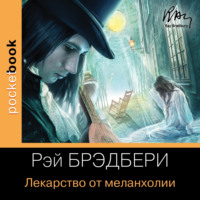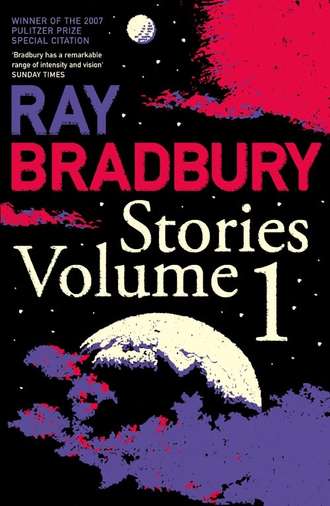
Полная версия
Ray Bradbury Stories Volume 1
‘I am no longer your captain,’ he said. ‘Nor am I a man.’
The men moved back.
‘I am the city,’ he said, and smiled.
‘I’ve waited two hundred centuries,’ he said, ‘I’ve waited for the sons of the sons of the sons to return.’
‘Captain, sir!’
‘Let me continue. Who built me? The city. The men who died built me. The old race who once lived here. The people whom the Earth Men left to die of a terrible disease, a form of leprosy with no cure. And the men of that old race, dreaming of the day when Earth Men might return, built this city, and the name of this city was and is Revenge, upon the Planet of Darkness, near the shore of the Sea of Centuries, by the Mountains of the Dead; all very poetic. This city was to be a balancing machine, a litmus, an antenna to test all future space travelers. In twenty thousand years only two other rockets landed here. One from a distant galaxy called Ennt, and the inhabitants of that craft were tested, weighed, found wanting, and let free, unscathed, from the city. As were the visitors in the second ship. But today! At long last, you’ve come! The revenge will be carried out to the last detail. Those men have been dead two hundred centuries, but they left a city here to welcome you.’
‘Captain, sir, you’re not feeling well. Perhaps you’d better come back to the ship, sir.’
The city trembled.
The pavements opened and the men fell, screaming. Falling, they saw bright razors flash to meet them!
Time passed. Soon came the call:
‘Smith?’
‘Here!’
‘Jensen?’
‘Here!’
‘Jones, Hutchinson, Springer?’
‘Here!’ ‘Here!’ ‘Here!’
They stood by the door of the rocket.
‘We return to Earth immediately.’
‘Yes, sir!’
The incisions on their necks were invisible, as were their hidden brass hearts and silver organs and the fine golden wire of their nerves. There was a faint electric hum from their heads.
‘On the double!’
Nine men hurried the golden bombs of disease culture into the rocket.
‘These are to be dropped on Earth.’
‘Right, sir!’
The rocket valve slammed. The rocket jumped into the sky.
As the thunder faded, the city lay upon the summer meadow. Its glass eyes were dulled over. The Ear relaxed, the great nostril vents stopped, the streets no longer weighed or balanced, and the hidden machinery paused in its bath of oil.
In the sky the rocket dwindled.
Slowly, pleasurably, the city enjoyed the luxury of dying.
The Fire Balloons
Fire exploded over summer night lawns. You saw sparkling faces of uncles and aunts. Skyrockets fell up in the brown shining eyes of cousins on the porch, and the cold charred sticks thumped down in dry meadows far away.
The Very Reverend Father Joseph Daniel Peregrine opened his eyes. What a dream: he and his cousins with their fiery play at his grandfather’s ancient Ohio home so many years ago!
He lay listening to the great hollow of the church, the other cells where other Fathers lay. Had they, too, on the eve of the flight of the rocket Crucifix, lain with memories of the Fourth of July? Yes. This was like those breathless Independence dawns when you waited for the first concussion and rushed out on the dewy sidewalks, your hands full of loud miracles.
So here they were, the Episcopal Fathers, in the breathing dawn before they pinwheeled off to Mars, leaving their incense through the velvet cathedral of space.
‘Should we go at all?’ whispered Father Peregrine. ‘Shouldn’t we solve our own sins on Earth? Aren’t we running from our lives here?’
He arose, his fleshy body, with its rich look of strawberries, milk, and steak, moving heavily.
‘Or is it sloth?’ he wondered. ‘Do I dread the journey?’
He stepped into the needle-spray shower.
‘But I shall take you to Mars, body.’ He addressed himself. ‘Leaving old sins here. And on to Mars to find new sins?’ A delightful thought, almost. Sins no one had ever thought of. Oh, he himself had written a little book: The Problem of Sin on Other Worlds, ignored as somehow not serious enough by his Episcopal brethren.
Only last night, over a final cigar, he and Father Stone had talked of it.
‘On Mars sin might appear as virtue. We must guard against virtuous acts there that, later, might be found to be sins!’ said Father Peregrine, beaming. ‘How exciting! It’s been centuries since so much adventure has accompanied the prospect of being a missionary!’
‘I will recognize sin,’ said Father Stone bluntly. ‘even on Mars.’
‘Oh, we priests pride ourselves on being litmus paper, changing color in sin’s presence,’ retorted Father Peregrine, ‘but what if Martian chemistry is such we do not color at all! If there are new senses on Mars, you must admit the possibility of unrecognizable sin.’
‘If there is no malice aforethought, there is no sin or punishment for same – the Lord assures us that,’ Father Stone replied.
‘On Earth, yes. But perhaps a Martian sin might inform the subconscious of its evil, telepathically, leaving the conscious mind of man free to act, seemingly without malice! What then?’
‘What could there be in the way of new sins?’
Father Peregrine leaned heavily forward. ‘Adam alone did not sin. Add Eve and you add temptation. Add a second man and you make adultery possible. With the addition of sex or people, you add sin. If men were armless they could not strangle with their hands. You would not have that particular sin of murder. Add arms, and you add the possibility of a new violence. Amoebas cannot sin because they reproduce by fission. They do not covet wives or murder each other. Add sex to amoebas, add arms and legs, and you would have murder and adultery. Add an arm or leg or person, or take away each, and you add or subtract possible evil. On Mars, what if there are five new senses, organs, invisible limbs we can’t conceive of – then mightn’t there be five new sins?’
Father Stone gasped. ‘I think you enjoy this sort of thing!’
‘I keep my mind alive, Father; just alive, is all.’
‘Your mind’s always juggling, isn’t it? – mirrors, torches, plates.’
‘Yes. Because sometimes the Church seems like those posed circus tableaus where the curtain lifts and men, white, zinc-oxide, talcum-powder statues, freeze to represent abstract Beauty. Very wonderful. But I hope there will always be room for me to dart about among the statues, don’t you, Father Stone?’
Father Stone had moved away. ‘I think we’d better go to bed. In a few hours we’ll be jumping up to see your new sins, Father Peregrine.’
The rocket stood ready for the firing.
The Fathers walked from their devotions in the chilly morning, many a fine priest from New York or Chicago or Los Angeles – the Church was sending its best – walking across town to the frosty field. Walking, Father Peregrine remembered the Bishop’s words:
‘Father Peregrine, you will captain the missionaries, with Father Stone at your side. Having chosen you for this serious task, I find my reasons deplorably obscure, Father, but your pamphlet on planetary sin did not go unread. You are a flexible man. And Mars is like that uncleaned closet we have neglected for millenniums. Sin has collected there like bric-a-brac. Mars is twice Earth’s age and has had double the number of Saturday nights, liquor baths, and eye-poppings at women as naked as white seals. When we open that closet door, things will fall on us. We need a quick, flexible man – one whose mind can dodge. Anyone a little too dogmatic might break in two. I feel you’ll be resilient. Father, the job is yours.’
The Bishop and the Fathers knelt.
The blessing was said and the rocket given a little shower of holy water. Arising, the Bishop addressed them:
‘I know you will go with God, to prepare the Martians for the reception of His Truth. I wish you all a thoughtful journey.’
They filed past the Bishop, twenty men, robes whispering, to deliver their hands into his kind hands before passing into the cleansed projectile.
‘I wonder,’ said Father Peregrine, at the last moment, ‘if Mars is Hell? Only waiting for our arrival before it bursts into brimstone and fire.’
‘Lord, be with us,’ said Father Stone.
The rocket moved.
Coming out of space was like coming out of the most beautiful cathedral they had ever seen. Touching Mars was like touching the ordinary pavement outside the church five minutes after having really known your love for God.
The Fathers stepped gingerly from the steaming rocket and knelt upon Martian sand while Father Peregrine gave thanks.
‘Lord, we thank Thee for the journey through Thy rooms. And, Lord, we have reached a new land, so we must have new eyes. We shall hear new sounds and must needs have new ears. And there will be new sins, for which we ask the gift of better and firmer and purer hearts. Amen.’
They arose.
And here was Mars like a sea under which they trudged in the guise of submarine biologists, seeking life. Here the territory of hidden sin. Oh, how carefully they must all balance, like gray feathers, in this new element, afraid that walking itself might be sinful; or breathing, or simple fasting!
And here was the mayor of First Town come to meet them with outstretched hand. ‘What can I do for you, Father Peregrine?’
‘We’d like to know about the Martians. For only if we know about them can we plan our church intelligently. Are they ten feet tall? We will build large doors. Are their skins blue or red or green? We must know when we put human figures in the stained glass so we may use the right skin color. Are they heavy? We will build sturdy seats for them.’
‘Father,’ said the mayor, ‘I don’t think you should worry about the Martians. There are two races. One of them is pretty well dead. A few are in hiding. And the second race – well, they’re not quite human.’
‘Oh?’ Father Peregrine’s heart quickened.
‘They’re round luminous globes of light, Father, living in those hills. Man or beast, who can say? But they act intelligently, I hear.’ The mayor shrugged. ‘Of course, they’re not men, so I don’t think you’ll care—’
‘On the contrary,’ said Father Peregrine swiftly. ‘Intelligent, you say?’
‘There’s a story. A prospector broke his leg in those hills and would have died there. The blue spheres of light came at him. When he woke, he was down on a highway and didn’t know how he got there.’
‘Drunk,’ said Father Stone.
‘That’s the story,’ said the mayor. ‘Father Peregrine, with most of the Martians dead, and only these blue spheres, I frankly think you’d be better off in First City. Mars is opening up. It’s a frontier now, like in the old days on Earth, out West, and in Alaska. Men are pouring up here. There’s a couple thousand black Irish mechanics and miners and day laborers in First Town who need saving, because there’re too many wicked women came with them, and too much ten-century-old Martian wine—’
Father Peregrine was gazing into the soft blue hills.
Father Stone cleared his throat. ‘Well, Father?’
Father Peregrine did not hear. ‘Spheres of blue fire?’
‘Yes, Father.’
‘Ah,’ Father Peregrine sighed.
‘Blue balloons.’ Father Stone shook his head. ‘A circus!’
Father Peregrine felt his wrists pounding. He saw the little frontier town with raw, fresh-built sin, and he saw the hills, old with the oldest and yet perhaps an even newer (to him) sin.
‘Mayor, could your black Irish laborers cook one more day in hellfire?’
‘I’d turn and baste them for you, Father.’
Father Peregrine nodded to the hills. ‘Then that’s where we’ll go.’
There was a murmur from everyone.
‘It would be so simple,’ explained Father Peregrine, ‘to go into town. I prefer to think that if the Lord walked here and people said, “Here is the beaten path,” He would reply, “Show me the weeds. I will make a path.”’
‘But—’
‘Father Stone, think how it would weigh upon us if we passed sinners by and did not extend our hands.’
‘But globes of fire!’
‘I imagine man looked funny to other animals when we first appeared. Yet he has a soul, for all his homeliness. Until we prove otherwise, let us assume that these fiery spheres have souls.’
‘All right,’ agreed the mayor, ‘but you’ll be back to town.’
‘We’ll see. First, some breakfast. Then you and I, Father Stone, will walk alone into the hills. I don’t want to frighten those fiery Martians with machines or crowds. Shall we have breakfast?’
The Fathers ate in silence.
At nightfall Father Peregrine and Father Stone were high in the hills. They stopped and sat upon a rock to enjoy a moment of relaxation and waiting. The Martians had not as yet appeared and they both felt vaguely disappointed.
‘I wonder—’ Father Peregrine mopped his face. ‘Do you think if we called “Hello!” they might answer?’
‘Father Peregrine, won’t you ever be serious?’
‘Not until the good Lord is. Oh, don’t look so terribly shocked, please. The Lord is not serious. In fact, it is a little hard to know just what else He is except loving. And love has to do with humor, doesn’t it? For you cannot love someone unless you put up with him, can you? And you cannot put up with someone constantly unless you can laugh at him. Isn’t that true? And certainly we are ridiculous little animals wallowing in the fudge bowl, and God must love us all the more because we appeal to His humor.’
‘I never thought of God as humorous,’ said Father Stone.
‘The Creator of the platypus, the camel, the ostrich, and man? Oh, come now!’ Father Peregrine laughed.
But at this instant, from among the twilight hills, like a series of blue lamps lit to guide their way, came the Martians.
Father Stone saw them first. ‘Look!’
Father Peregrine turned and the laughter stopped in his mouth.
The round blue globes of fire hovered among the twinkling stars, distantly trembling.
‘Monsters!’ Father Stone leaped up. But Father Peregrine caught him. ‘Wait!’
‘We should’ve gone to town!’
‘No, listen, look!’ pleaded Father Peregrine.
‘I’m afraid!’
‘Don’t be. This is God’s work!’
‘The devil’s!’
‘No, now, quiet!’ Father Peregrine gentled him and they crouched with the soft blue light on their upturned faces as the fiery orbs drew near.
And again. Independence Night, thought Father Peregrine, tremoring. He felt like a child back in those July Fourth evenings, the sky blowing apart, breaking into powdery stars and burning sound, the concussions jingling house windows like the ice on a thousand thin ponds. The aunts, uncles, cousins crying, ‘Ah!’ as to some celestial physician. The summer sky colors. And the Fire Balloons, lit by an indulgent grandfather, steadied in his massively tender hands. Oh, the memory of those lovely Fire Balloons, softly lighted, warmly billowed bits of tissue, like insect wings, lying like folded wasps in boxes and, last of all, after the day of riot and fury, at long last from their boxes, delicately unfolded, blue, red, white, patriotic – the Fire Balloons! He saw the dim faces of dear relatives long dead and mantled with moss as Grandfather lit the tiny candle and let the warm air breathe up to form the balloon plumply luminous in his hands, a shining vision which they held, reluctant to let it go; for, once released, it was yet another year gone from life, another Fourth, another bit of Beauty vanished. And then up, up, still up through the warm summer night constellations, the Fire Balloons had drifted, while red-white-and-blue eyes followed them, wordless, from family porches. Away into deep Illinois country, over night rivers and sleeping mansions the Fire Balloons dwindled, forever gone …
Father Peregrine felt tears in his eyes. Above him the Martians, not one but a thousand whispering Fire Balloons, it seemed, hovered. Any moment he might find his long-dead and blessed grandfather at his elbow, staring up at Beauty.
But it was Father Stone.
‘Let’s go, please, Father!’
‘I must speak to them.’ Father Peregrine rustled forward, not knowing what to say, for what had he ever said to the Fire Balloons of time past except with his mind: you are beautiful, you are beautiful, and that was not enough now. He could only lift his heavy arms and call upward, as he had often wished to call after the enchanted Fire Balloons, ‘Hello!’
But the fiery spheres only burned like images in a dark mirror. They seemed fixed, gaseous, miraculous, forever.
‘We come with God,’ said Father Peregrine to the sky.
‘Silly, silly, silly.’ Father Stone chewed the back of his hand. ‘In the name of God, Father Peregrine, stop!’
But now the phosphorescent spheres blew away into the hills. In a moment they were gone.
Father Peregrine called again, and the echo of his last cry shook the hills above. Turning, he saw an avalanche shake out dust, pause, and then, with a thunder of stone wheels, crash down the mountain upon them.
‘Look what you’ve done!’ cried Father Stone.
Father Peregrine was almost fascinated, then horrified. He turned, knowing they could run only a few feet before the rocks crushed them into ruins. He had time to whisper, Oh, Lord! and the rocks fell!
‘Father!’
They were separated like chaff from wheat. There was a blue shimmering of globes, a shift of cold stars, a roar, and then they stood upon a ledge two hundred feet away watching the spot where their bodies should have been buried under tons of stone.
The blue light evaporated.
The two Fathers clutched each other. ‘What happened?’
‘The blue fires lifted us!’
‘We ran, that was it!’
‘No, the globes saved us.’
‘They couldn’t!’
‘They did.’
The sky was empty. There was a feel as if a great bell had just stopped tolling. Reverberations lingered in their teeth and marrow.
‘Let’s get away from here. You’ll have us killed.’
‘I haven’t feared death for a good many years, Father Stone.’
‘We’ve proved nothing. Those blue lights ran off at the first cry. It’s useless.’
‘No.’ Father Peregrine was suffused with a stubborn wonder. ‘Somehow, they saved us. That proves they have souls.’
‘It proves only that they might have saved us. Everything was confused. We might have escaped, ourselves.’
‘They are not animals, Father Stone. Animals do not save lives, especially of strangers. There is mercy and compassion here. Perhaps, tomorrow, we may prove more.’
‘Prove what? How?’ Father Stone was immensely tired now; the outrage to his mind and body showed on his stiff face. ‘Follow them in helicopters, reading chapter and verse? They’re not human. They haven’t eyes or ears or bodies like ours.’
‘But I feel something about them,’ replied Father Peregrine. ‘I know a great revelation is at hand. They saved us. They think. They had a choice; let us live or die. That proves free will!’
Father Stone set to work building a fire, glaring at the sticks in his hands, choking on the gray smoke. ‘I myself will open a convent for nursling geese, a monastery for sainted swine, and I shall build a miniature apse in a microscope so that paramecium can attend services and tell their beads with their flagella.’
‘Oh, Father Stone.’
‘I’m sorry.’ Father Stone blinked redly across the fire. ‘But this is like blessing a crocodile before he chews you up. You’re risking the entire missionary expedition. We belong in First Town, washing liquor from men’s throats and perfume off their hands!’
‘Can’t you recognize the human in the inhuman?’
‘I’d much rather recognize the inhuman in the human.’
‘But if I prove these things sin, know sin, know a moral life, have free will and intellect, Father Stone?’
‘That will take much convincing.’
The night grew rapidly cold and they peered into the fire to find their wildest thoughts, while eating biscuits and berries, and soon they were bundled for sleep under the chiming stars. And just before turning over one last time Father Stone, who had been thinking for many minutes to find something to bother Father Peregrine about, stared into the soft pink charcoal bed and said, ‘No Adam and Eve on Mars. No Original Sin. Maybe the Martians live in a state of God’s grace. Then we can go back down to town and start work on the Earth Men.’
Father Peregrine reminded himself to say a little prayer for Father Stone, who got so mad and who was now being vindictive, God help him. ‘Yes, Father Stone, but the Martians killed some of our settlers. That’s sinful. There must have been an Original Sin and a Martian Adam and Eve. We’ll find them. Men are men, unfortunately, no matter what their shape, and inclined to sin.’
But Father Stone was pretending sleep.
Father Peregrine did not shut his eyes.
Of course they couldn’t let these Martians go to Hell, could they? With a compromise to their consciences, could they go back to the new colonial towns, those towns so full of sinful gullets and women with scintilla eyes and white oyster bodies rollicking in beds with lonely laborers? Wasn’t that the place for the Fathers? Wasn’t this trek into the hills merely a personal whim? Was he really thinking of God’s Church, or was he quenching the thirst of a spongelike curiosity? Those blue round globes of St Anthony’s fire – how they burned in his mind! What a challenge, to find the man behind the mask, the human behind the inhuman. Wouldn’t he be proud if he could say, even to his secret self, that he had converted a rolling huge pool table full of fiery spheres! What a sin of pride! Worth doing penance for! But then one did many prideful things out of Love, and he loved the Lord so much and was so happy at it that he wanted everyone else to be happy too.
The last thing he saw before sleep was the return of the blue fires, like a flight of burning angels silently singing him to his worried rest.
The blue round dreams were still there in the sky when Father Peregrine awoke in the early morning.
Father Stone slept like a stiff bundle, quietly. Father Peregrine watched the Martians floating and watching him. They were human – he knew it. But he must prove it or face a dry-mouthed, dry-eyed Bishop telling him kindly to step aside.
But how to prove humanity if they hid in the high vaults of the sky? How to bring them nearer and provide answers to the many questions?
‘They saved us from the avalanche.’
Father Peregrine arose, moved off among the rocks, and began to climb the nearest hill until he came to a place where a cliff dropped sheerly to a floor two hundred feet below. He was choking from his vigorous climb in the frosty air. He stood, getting his breath.
‘If I fell from here, it would surely kill me.’
He let a pebble drop. Moments later it clicked on the rocks below.
‘The Lord would never forgive me.’
He tossed another pebble.
‘It wouldn’t be suicide, would it, if I did it out of Love … ?’
He lifted his gaze to the blue spheres. ‘But first, another try.’ He called to them: ‘Hello, hello!’
The echoes tumbled upon each other, but the blue fires did not blink or move.
He talked to them for five minutes. When he stopped, he peered down and saw Father Stone, still indignantly asleep, below in the little camp.
‘I must prove everything.’ Father Peregrine stepped to the cliff rim. ‘I am an old man. I am not afraid. Surely the Lord will understand that I am doing this for Him?’
He drew a deep breath. All his life swam through his eyes and he thought, In a moment shall I die? I am afraid that I love living much too much. But I love other things more.
And, thinking thus, he stepped off the cliff.



